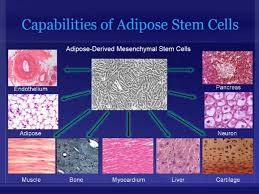A GOOD NIGHT’S SLEEP PROTECTS STEM CELLS FROM PREMATURE AGING

If you’re one of those people who are really fond of their beauty sleep, or who never compromise when it comes to their night sleep, now you have one more reason to never skip your 8 hours.
Scientists at the German Cancer Research Center have found that while environmental stress can damage the DNA in adult hematopoietic stem cells, a good night’s sleep can keep these cells young, contributing to a youthful appearance and preventing cancer.
HEALTHY SLEEP PATTERNS LOWER THE RISK OF DNA DAMAGE IN STEM CELLS
According to German researchers, under normal conditions a high number of different types of adult stem cells exists in a state of dormancy inside the human body, but they cannot divide, therefore cannot be used for tissue regeneration. This state of dormancy protects the stem cells from DNA damage, keeping us younger and preventing premature aging [1].
Yet, increased levels of stress – in all its forms, from chronic infections to environmental stress – can trigger a rapid division of the stem cells, as the body needs to repair its damaged tissues. In such conditions, the dormant stem cells have to go from no activity to very high activity in a short interval, and this rapid change forces them to increase their metabolic rate and synthesize new DNA.
Doctor Michael Milsom, who coordinated the study, says that having to simultaneously execute such complicated functions increases the risk of DNA damage in the stem cells, reducing the ability of tissues to repair themselves and speeding up aging [1, 3].
Moreover, the scientist believes that the accumulation of stress-induced damage in the stem cells can make one more prone to cancer, experiments conducted in this study showing that cell division that takes place under stress leads to an increased production of reactive metabolites. These substances can damage the DNA, causing the death of the stem cell or leading to mutations that can contribute to cancer.
Understanding how to prevent the aging of stem cells or the DNA mutations and damage could be the key to delaying the aging process and reducing the risk of developing certain forms of cancer, concludes Dr. Trumpp, co-author of the research paper.
PROTECT YOUR STEM CELLS FOR HEALTHY SKIN AND A YOUTHFUL LOOK
This exciting study is not the only one to prove the connection between sleep and the health of stem cells. Another paper, published in the journal of Cell Research by scientists from the University of California Irvine, showed that circadian rhythms regulate the metabolism of skin stem cells, and that getting enough sleep during the night can maintain healthy cell division, nurturing stem cell differentiation [2].
Although the study was conducted on mice, the findings are worth exploring further, so as to determine whether a disruption in the healthy circadian rhythm can alter the normal function of stem cells, leading to accelerated aging.
Professors Andersen and Gratton, who conducted the study, focused on the effects of stem cells on the skin, being already known that stem cells found in the dermal layers protect the skin and help in the repairing of the epidermis.
Using innovative technologies, the two researchers measured the metabolic state of stem cells, discovering that the circadian clock does regulate one form of intermediary metabolism in the target cells. According to the researchers, it’s the same component of metabolism that creates oxygen radicals, harmful substances that can cause DNA damage.
The results of this study suggest that maintaining healthy sleep patterns can prevent DNA-damage in skin stem cells, while an altered internal clock could lead to the accumulation of damage in these cells, accelerating aging.
References:
[1] http://www.sciencedaily.com/releases/2015/02/150218122951.htm[2] http://www.cell.com/cell-reports/abstract/S2211-1247%2814%2901018-3
[3] http://en.wikipedia.org/wiki/DNA_damage_theory_of_aging



